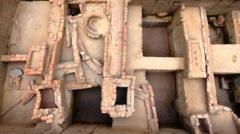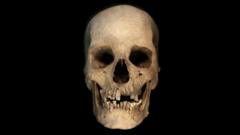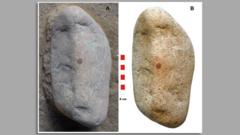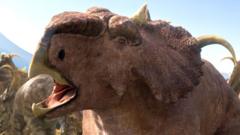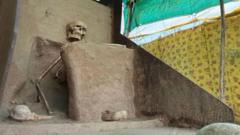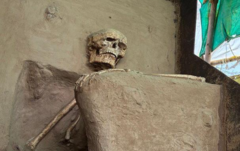Scientists say seven skeletons found in a mass grave in Croatia were most likely Roman soldiers who lived 1,700 years ago.
The male skeletons, all with various injuries, were found 'completely preserved' during excavations in 2011 at the site of the Roman city of Mursa - modern-day Osijek - in Croatia's far east, according to a new research paper.
Mursa was conquered by the Romans during the first century BC and became a large settlement that was also an important center for trade and craft.
Researchers from several European archaeological institutions have determined not only when the men lived but also how they may have died.
According to the paper, the men in the grave were aged between 36-50 years old, taller-than-average in height, and were 'robust' individuals. Their diets were mainly vegetarian, but some had indulged in a little meat and seafood.
All showed various healed and un-healed injuries, including those caused by blunt force trauma, and there were puncture wounds on two of their torsos, believed to be caused by arrows or spear tips.
The men were suffering from some form of pulmonary disease during their final days. DNA analysis revealed a mix of ancestry, with none appearing to be from the local area.
The paper noted that the Roman Empire was particularly violent, and Mursa was involved in numerous conflicts. The researchers believe the men were victims of the 'Crisis of the Third Century', most likely from the battle of Mursa in 260 CE.
Mass burials like the one discovered are not customary in the Roman Empire and were typically reserved for extreme situations and mass casualties, suggesting that the skeletons were 'most probably thrown in' the well before being covered with soil. Mursa has been archaeologically significant for years, revealing various ancient civilization sites.












